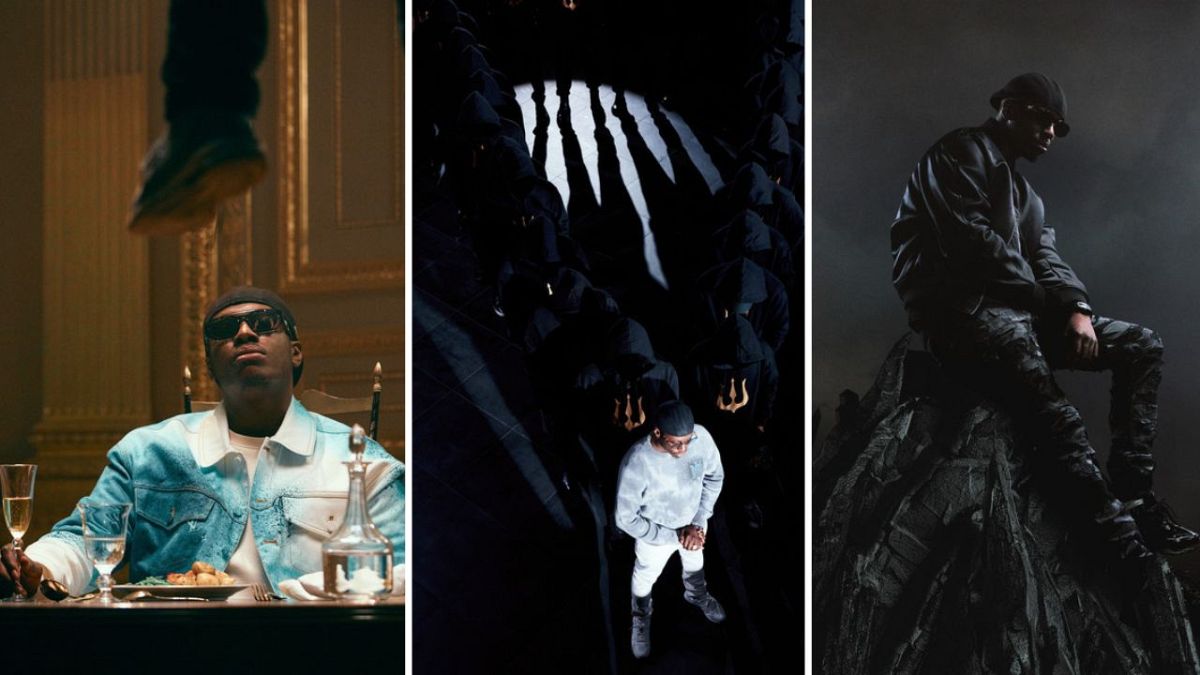Should an artist’s faith determine what happens to their work when they die? The death of one of France’s most successful rappers has raised this question.
French rapper Werenoi, whose real name was Jérémy Bana Owona, died on 17 May 2025, aged 31. He was France’s top album seller in 2023 and 2024, and his death shocked both the music industry and the public.
“Rest in peace my man. A news that saddens me and courage to the loved ones especially”, popstar Aya Nakamura wrote on social media.
Following the release of his first song ‘Guadalajara’ in 2021, Werenoi quickly rose to great success. His 2024 album ‘Carré’ was named best rap album at the Flammes Awards, and he was the opening act for Burna Boy at the Stade de France in April.
With more than 7 million monthly listeners on Spotify, he was an example of a vibrant francophone music scene that keeps growing worldwide, according to the platform’s new report on francophone content.
Culture minister Rachida Dati called the rapper “the icon of a generation.”
“In an age of overexposure and ever-present social media, he had opted for privacy. Cultivating discretion, he revealed himself only through his lyrics”, Dati said in a statement on 20 May.
One of the only known facts about Werenoi’s private life was his faith. The rapper was Muslim.
Mixed messages
In the hours following his death, debates erupted on social media over what should be done with his music according to Islam.
“Werenoi was a Muslim, and we invite you to listen to his music as little as possible, out of respect for his faith,” online rap publication Raplume said in a social media post that has since been deleted.
“Avoid streaming Werenoi’s tracks, he was a Muslim, it’s for his faith”, one user said on X. A tribute to the artist by French rap radio station Skyrock elicited similar criticism.
Other fans felt that listening to Werenoi’s music was a way of paying their respects and ensuring that his legacy lives on.
“When he was alive, Werenoi was making music, going on Skyrock and selling albums, so it’s only natural that when he dies, the rap world should pay tribute to him by playing his music”, one user wrote on X.
The rapper’s team and relatives have not publicly weighed in on the debate, leaving fans to decipher mixed messages.
Werenoi’s music videos were removed from YouTube, but the audio versions still remain available on the platform.
A source close to the rapper told French newspaper Le Parisien that the videos had only been temporarily hidden to allow the family to grieve. Werenoi’s producer later denied this claim.
Rumours even said the artist’s entire discography would soon disappear from all streaming platforms, but this has yet to happen.
“Controversial interpretations”
The teachings of Islam are up to interpretation. Many on social media argue that music is haram, meaning it is forbidden by Islamic law. Listening to Werenoi’s music after his death would bring him sins in his grave.
But the word “music” does not actually appear in the Quran and many artists around the world are practising Muslims.
“The prohibition of music by some branches of Islam is not based on any consensus but rather on controversial interpretations of certain suras and hadiths [statements attributed to the prophet Muhammad]”, musicologist Luis Velasco-Pufleau wrote in a 2017 blogpost.
Fundamentalist Islamic movements like Salafism and Wahhabism strictly prohibit music while other traditions, like Sufism, are more lenient.
There have been similar controversies in the past. The death in 2019 of British rapper Cadet, who converted to Islam at 15, also ignited online discussions on the future of his music – much to the dismay of some users.
“When anyone else passes away Muslims will send their condolences as normal… But when it’s a Muslim [rapper] we go into theological debates about sharing his music etc”, London-based imam Shabbir Hassan posted on X (then Twitter) at the time.
“Just take a lesson from his death and make du’a [a Muslim prayer] for him. That will benefit us/him the most.”
For some, this question tends to be overly politicised.
“It’s fascinating how cultural topics can raise this kind of political and religious debates,” streamer iliesomg said on decolonial YouTube channel Paroles d’honneur.
He said that listening to Werenoi’s music should be a personal decision for Muslim believers, guided by their own approach to spirituality.
Numbers show that Werenoi’s audience, Muslim or not, does not seem ready to let go of his art. Sales for his last album ‘Diamant noir’, released in April, rose by 72% in the week after his death, making it the most listened album in France.

